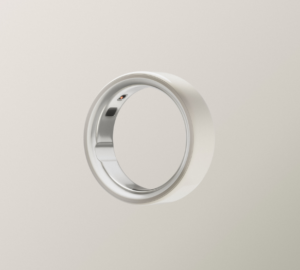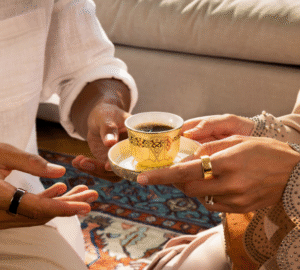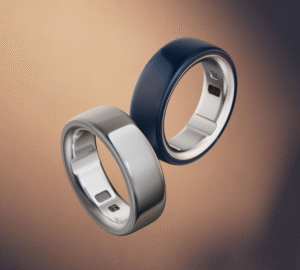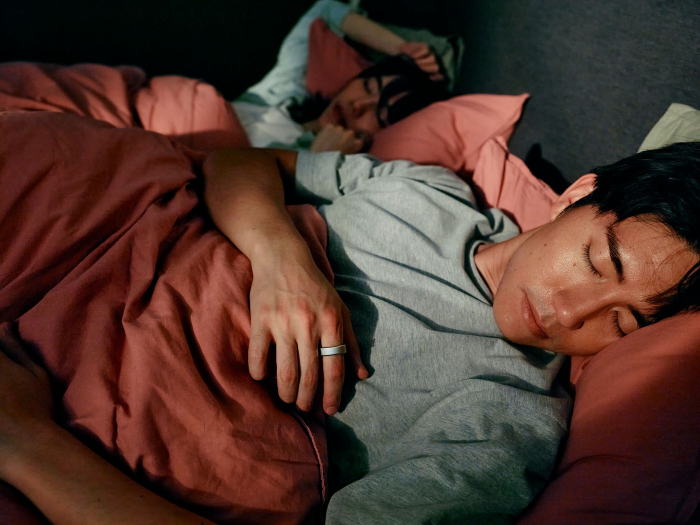Kwaliteitsvolle slaap gaat niet alleen over je uitgerust voelen – het vormt de basis voor optimale gezondheid, cognitieve prestaties en emotioneel welzijn Toch kampen miljoenen mensen met een slechte slaapkwaliteit, onregelmatige slaapschema’s en de frustratie van moe wakker worden. Het verschil tussen goed en uitstekend slapen ligt vaak in het begrijpen van je nachtelijke rustpatronen.
Maak kennis met de Oura Ring, de revolutionaire smartring die wetenschappelijk onderbouwde slaapgegevens levert met een hoge mate van nauwkeurigheid in vergelijking met polysomnografie, of PSG – de gouden standaard in klinisch slaaponderzoek. Oura biedt een uitgebreid overzicht van je slaap, inclusief een volledige uiteenzetting van je slaapefficiëntie, slaapfasen, slaaptiming, chronotype en meer, zodat je erachter komt wat werkt en wat niet.
Hoewel Oura geen wondermiddel is om beter te slapen, bieden de wetenschappelijk onderbouwde functies en inzichten je wel de gedetailleerde gegevens en persoonlijke feedback die kunnen leiden tot betere slaap. En de meeste van onze leden zijn het ermee eens: 86% geeft aan dat hun slaapkwaliteit verbetert in de eerste 30 dagen dat ze Oura gebruiken.*
Maar hoe kun je je Oura-gegevens gebruiken om betere slaapgewoonten te bevorderen? Laten we samen ontdekken hoe de Oura Ring je helpt beter te slapen – en je beter te voelen.
Op basis van een enquête onder 699 Oura-leden nadat ze 30 dagen lang een Oura Ring hadden gebruikt
Hoe nauwkeurig is de Oura Ring?
Oura is de beste manier om je slaap bij te houden, maar dat hoef je niet zomaar van ons aan te nemen. Collegiaal getoetst onderzoek gepubliceerd in Sensors heeft aangetoond aan dat Oura een van de best presterende apparaten is wat betreft nauwkeurigheid bij het vaststellen van slaapfasen en het schatten van de hartslag, in vergelijking met andere wearables voor consumenten.
Wat is ons geheim voor nauwkeurigheid? Traditionele technologie voor slaapregistratie is vaak gebaseerd op bewegingsalgoritmen die slechts beperkt inzicht geven in je werkelijke slaapkwaliteit. Oura heeft deze aanpak compleet veranderd. De Oura Ring-technologie, die in eerste instantie werd geïntroduceerd met het bijhouden van slaap als belangrijkste doel, is ontworpen met behulp van meerdere geavanceerde sensoren die je fysiologie gedurende de nacht monitoren.
Bovendien is de plaatsing van de Oura Ring om de vinger niet toevallig: het ontwerp is gericht op optimale nauwkeurigheid. De vinger geeft de meest nauwkeurige meting van je lichaamssignalen, waardoor Oura subtiele veranderingen in hartslagvariabiliteit, ademhalingspatronen en temperatuurtrends kan waarnemen die verschillende slaapfasen en herstelprocessen aangeven.
De kracht van Oura ligt in ons streven naar wetenschappelijke onderbouwing. Met meer dan 10 jaar ervaring en onderzoek, en meer dan 20 PhD’s die samenwerken in een interdisciplinair wetenschappelijk team, blijven we onze algoritmes verfijnen op basis van echte data en partnerschappen op het gebied van klinisch onderzoek.
Op basis van deze klinisch bewezen nauwkeurigheid gaan we de specifieke manieren ontdekken waarop Oura je kan helpen om je diepste, meest herstellende slaap te bereiken.
Zo verbeter je je slaap met Oura
1. Gedetailleerde slaapgegevens
Krijg je voldoende slaap – en krijg je die slaap ook consequent? De duur, timing en regelmaat van je slaap zijn de belangrijkste (en het meest direct toepasbare) factoren om je rust te verbeteren. Met Oura kun je niet alleen bijhouden hoe lang je slaapt, maar ook hoe efficiënt je slaapt en hoe regelmatig je een ritme aanhoudt – drie belangrijke factoren die sterk van invloed zijn op je slaapgezondheid op de lange termijn.
Naast de duur en regelmaat biedt Oura je gedetailleerd inzicht in je nachtelijke slaapstructuur. Elke nacht doorloopt je lichaam de volgende fasen: lichte slaap, diepe slaap en remslaap, die elk een unieke rol spelen in herstel. Hoewel je het aandeel van deze fasen grotendeels niet direct kunt beïnvloeden, kun je wel trends opmerken, bijvoorbeeldlaat cafeïnegebruik vermindert de remslaap, of magnesium verbetert diepe slaap.
Naast de duur van elke slaapfase, houdt Oura ook de fundamentele aspecten van de slaapkwaliteit bij, die we slaapfactoren noemen:
- Totale slaaptijd
- Slaapefficiëntie (hoeveel tijd je in bed slapend hebt doorgebracht)
- Slaaplatentie (hoe lang het duurde voordat je in slaap viel)
- Rust (hoeveel je hebt liggen woelen)
- Timing (was je bedtijd afgestemd op je circadiaans ritme en chronotype?)
Op basis van al deze factoren, krijg je een dagelijkse slaapscore. Deze slaapscore wordt gebruikt voor de functie bedtijdadvies, een dagelijkse melding die je laat weten wanneer je ideale bedtijd nadert, zodat je je slaaptiming en regelmaat kunt optimaliseren.
2. Volg slaaptrends over een bepaalde periode
Het gaat niet alleen om hoe je elke nacht slaapt. Oura helpt je om je slaappatroon op lange termijn bij te houden, zodat je kunt experimenteren met verschillende oplossingen voor jouw specifieke slaapbehoeften. Zo ontdek je misschien dat lezen voor het slapengaan je slaaplatentie verbetert. De gegevens van maar één nacht zijn wellicht niet voldoende motivatie om een bepaalde gewoonte vol te houden, maar als je de impact van een hele maand bijhoudt, kan dat net de stimulans zijn die je nodig hebt om ermee door te gaan. Gebruik het overzicht Trends om de impact van een gewoonte op een specifieke biometrische waarde te zien.
Daarnaast kunnen leden toegang krijgen tot Oura on the Web voor een meer gedetailleerd overzicht van hun biometrische gegevens. Je kunt verschillende gegevenspunten vergelijken, zoals temperatuurtrends of slaaplatentie, om te zien hoe ze met elkaar samenhangen.
Dit niveau van inzicht maakt het gemakkelijker om te zien wat voor jou werkt, en je kunt zelfs de gegevens exporteren om te delen met een arts, gezondheidscoach of een andere professional voor verdere analyse en begeleiding.
3. Krijg een compleet beeld van je herstel
Oura’s slaapscore neemt meerdere factoren in aanmerking om je een compleet beeld te geven van hoe goed je lichaam herstelt. Maar het is niet het enige inzicht in je herstel. De uitgerustheidsscore houdt rekening met andere belangrijke herstelstatistieken, waaronder hartslagvariabiliteit (HRV) en rusthartslag (RHR).
HRV, dat de subtiele variaties tussen hartslagen meet, is een van de belangrijkste statistieken om inzicht te krijgen in het evenwicht en herstel van het autonome zenuwstelsel. Een grotere variabiliteit duidt over het algemeen op een beter herstelvermogen en een grotere stressbestendigheid.
Rusthartslag is een andere belangrijke indicator voor herstel, die doorgaans daalt tijdens de slaap, terwijl je hart en vaatstelsel herstellen van de dagelijkse stress. Een constant verhoogde rusthartslag tijdens de slaap kan wijzen op onvoldoende herstel, het begin van een ziekte of overmatige stress. Oura volgt deze patronen om je te helpen inzicht te krijgen in de herstelpatronen van je lichaam.
Deze scores zijn gebaseerd op verschillende meetwaarden om één bruikbaar getal te verkrijgen, zodat je weloverwogen beslissingen kunt nemen over trainingsintensiteit, omgaan met stress en dagelijkse activiteiten.
4. Ontdek jouw ideale persoonlijke ritme
Je biologische klok, of je circadiaans ritme, regelt niet alleen je slaap-waakritme, maar ook de aanmaak van hormonen, je lichaamstemperatuur en je stofwisseling gedurende de dag.
En regelmaat bij deze interne ritmes is essentieel voor een betere nachtrust: Onderzoek toont aan dat mensen met een regelmatig slaapschema – elke dag rond dezelfde tijd naar bed gaan en opstaan – aanzienlijk betere slaapkwaliteit en meer energie overdag ervaren dan mensen met een onregelmatig schema.
Oura helpt je je persoonlijke optimale slaaptiming te ontdekken en bepaalt je chronotype (of je een ochtendmens, avondmens of iets daar tussenin bent) door je natuurlijke patronen in de loop van de tijd bij te houden.
Om met Oura een regelmatig slaapschema te creëren, moet je je bedtijd en ontwaaktijd geleidelijk aanpassen op basis van je bijgehouden patronen. Het belangrijkste is om kleine, houdbare veranderingen door te voeren in plaats van drastische veranderingen die je biologische klok in de war brengen. De gegevens van Oura helpen je het optimale bedtijdvenster te vinden dat zowel de slaapduur als de kwaliteit maximaliseert.
Ook omgevingsfactoren spelen een cruciale rol bij het handhaven van de consistentie van het circadiaans ritme. Met Oura kun je ontdekken hoe factoren zoals blootstelling aan licht, timing van maaltijden en avondactiviteiten invloed hebben op hoe makkelijk je in slaap valt op je gewenste bedtijd. Door deze factoren te koppelen aan je slaapstatistieken, kun je je avondroutine optimaliseren voor een consistente, hoogwaardige nachtrust.
| Uitgelicht lid: Oura-lid Saša M. ontdekte dat ze een avondtype is, wat haar ertoe aanzette haar werkschema aan te passen om langer te kunnen uitslapen. |
5. Leg verbanden tussen gewoonten en slaap
Voer je gewoonten in
Met Tags kun je je dagelijkse gewoonten, gedrag en zelfs emoties vastleggen en zo begrijpen hoe deze je slaap beïnvloeden. Je kunt kiezen uit verschillende bestaande tags, zoals “alcohol”, “cafeïne” of “grote hoogte”, of aangepaste tags maken op basis van je dagelijkse activiteiten.
Merk verbanden op
Wanneer je regelmatig tags gebruikt, ontvang je meldingen van een persoonlijk inzicht, dat statistisch significante verbanden tussen je biometrische gegevens en getagde gewoonten laat zien. Zo kun je bijvoorbeeld ontdekken dat je remslaap toeneemt nadat je “sauna” hebt getagd.
Inzicht in de impact van je menstruatiecyclus
Naast taggen kan het gebruik van cyclusinzichten je laten zien hoe hormonale veranderingen je slaap beïnvloeden. Je merkt misschien dat je meer remslaap krijgt tijdens de folliculaire fase of levendigere dromen hebt vóór je menstruatie.
| Uitgelicht lid: Oura-lid Jussi L. merkte dat zijn slaap en hartslagvariabiliteit (HRV) kelderden na slechts één glas wijn. |
Inzicht in de impact van stress
Met de Oura-functie Stressniveau overdag kun je ook verbanden opmerken tussen je stress en slaap. Als je bijvoorbeeld je in de uren voor het slapengaan tijd doorbrengt in de zones “Ontspannen” of “Opgeknapt”, kun je sneller in slaap vallen en meer ontspannen slaap krijgen. Aan de andere kant, als Oura tekenen van veel stress detecteert, kun je een inzicht met een milde insteek, een geleide ademhalingsoefening of meditatie te zien krijgen om je te helpen je stress te verlagen.
Dit helpt je om de specifieke gewoonten te herkennen die goed zijn voor je slaap, zodat je die kunt blijven doen – en de gewoonten die een negatieve invloed lijken te hebben, kunt veranderen.
| Tip voor leden: Bekijk diverse geleide meditaties en ademhalingsoefeningen binnen Ontdekken in de Oura-app om je te helpen stress te verlagen en beter te slapen. |
6. Oura kan je dat zetje geven in de juiste richting
Door je slaap, stress en activiteit dagelijks bij te houden, helpt Oura je om scherp te blijven. Het is moeilijker om gebieden die aandacht nodig hebben te negeren of te ontkennen als je duidelijke gegevens hebt die laten zien waar verbeteringen nodig zijn.
Het doel is niet om je slecht te laten voelen. Sterker nog, het is juist het tegenovergestelde. Met deze waardevolle gegevens kun je weloverwogen, positieve veranderingen doorvoeren om je welzijn te verbeteren. Of het nu gaat om het creëren van een regelmatig slaapschema, regelmatig lichaamsbeweging krijgen, beter omgaan met stress of het verminderen van schermtijd, je raakt gemotiveerd als je ziet dat deze gezonde gewoonten je statistieken verbeteren.
7. Ontvang persoonlijk advies van Oura Advisor
Oura Advisor is onze AI-tool die je persoonlijke begeleiding geeft in de vorm van een gesprek.
Met behulp van geavanceerde algoritmen voor gezondheidswaarneming en een baanbrekend taalmodel analyseert Oura Advisor je gegevens om bruikbare tips te geven. Je kunt de toon van de coach aanpassen (ondersteunend, coachend of doelgericht) en instellen hoe vaak je meldingen ontvangt.
Vraag Oura Advisor om samenvattingen van je slaap van de afgelopen weken of om advies over specifieke punten die je kunt verbeteren. Dit helpt je om te brainstormen, steun te krijgen en gemotiveerd te blijven op je weg naar een betere nachtrust.
8. Wees proactiever met betrekking tot je rust
Stel je voor: je wordt wakker en ziet een lage slaapscore. Wat ga je anders doen vandaag? Misschien probeer je een paar extra herstellende pauzes te nemen of plan je een dutje in de middag om op te laden.
Met dagelijkse gegevens over je slaap en uitgerustheid kun je je routine aanpassen om ervoor te zorgen dat je je zo goed mogelijk voelt en optimaal presteert.
| Uitgelicht lid: Wanneer Oura-lid Hemang K. weinig remslaap krijgt, kijkt hij naar zijn werkschema en verzet hij indien mogelijk meetings, omdat hij weet dat remslaap nauw verbonden is met emotionele regulatie. |
Beter slapen begint nu
Het bijhouden van slaappatronen heeft duidelijke voordelen, namelijk: Je kunt je slaap niet verbeteren als je nietsnapt hoe je slaapt. Oura’s milde en gedegen benadering van slaapregistratie kan je helpen om nauwkeurig te achterhalen wat er gebeurt als je onder de wol kruipt. Het doel is simpel: je de gegevens en tools geven die je nodig hebt om je slaap blijvend te verbeteren.















